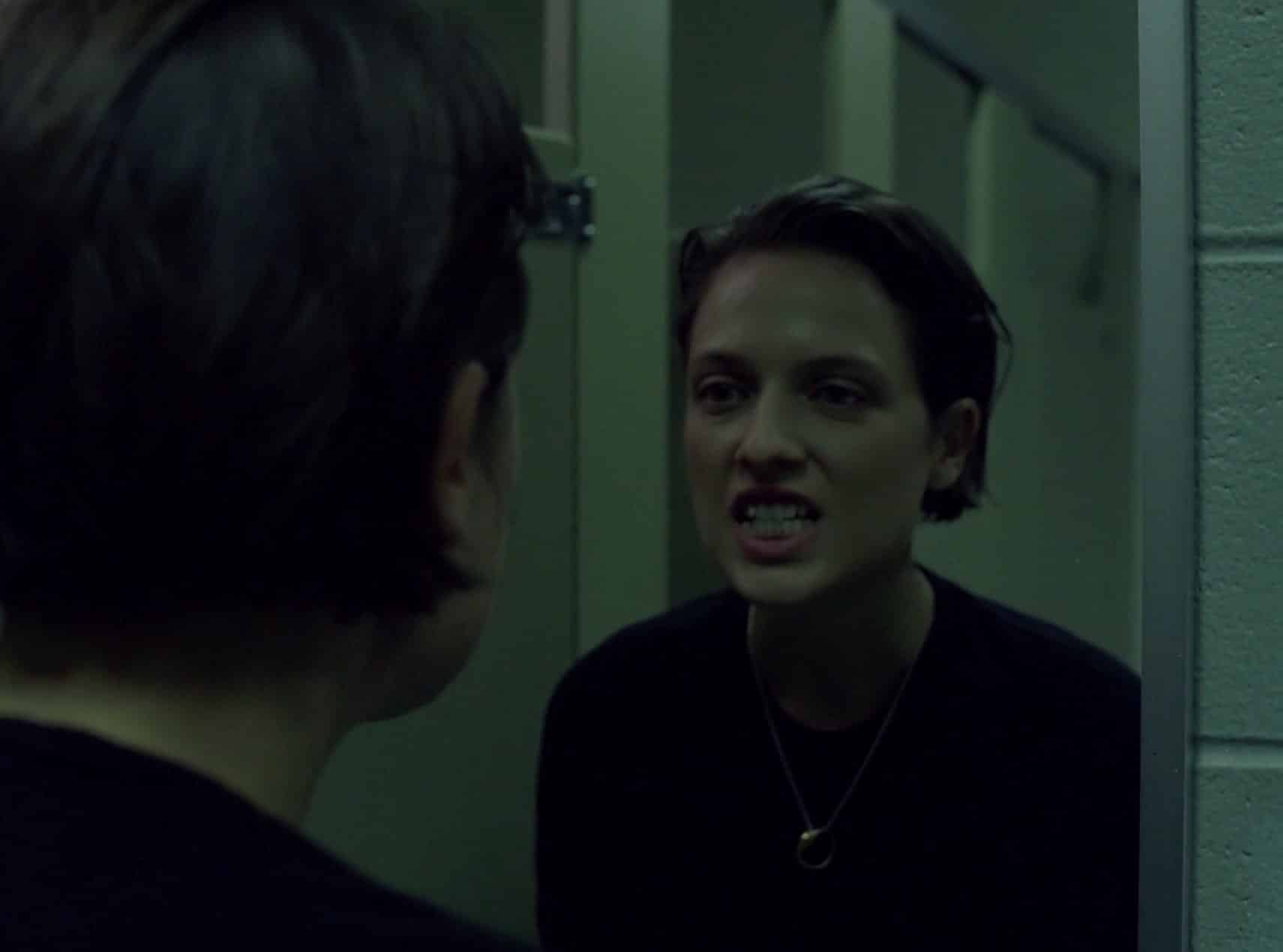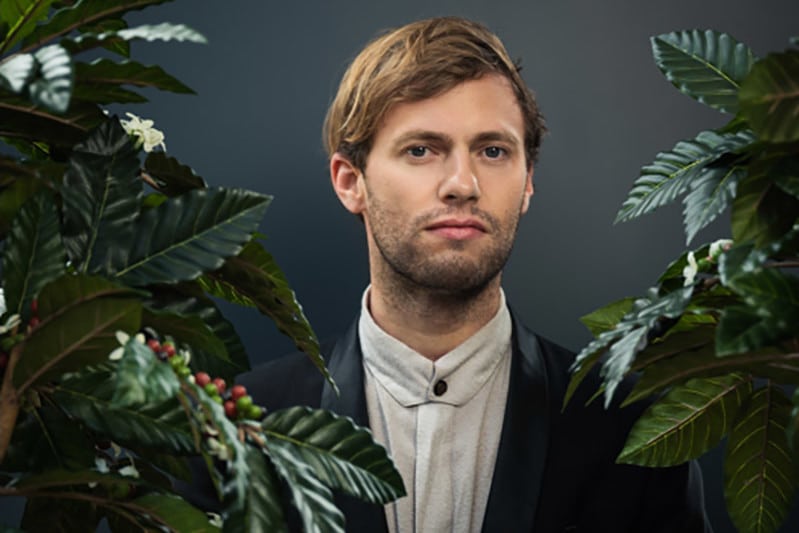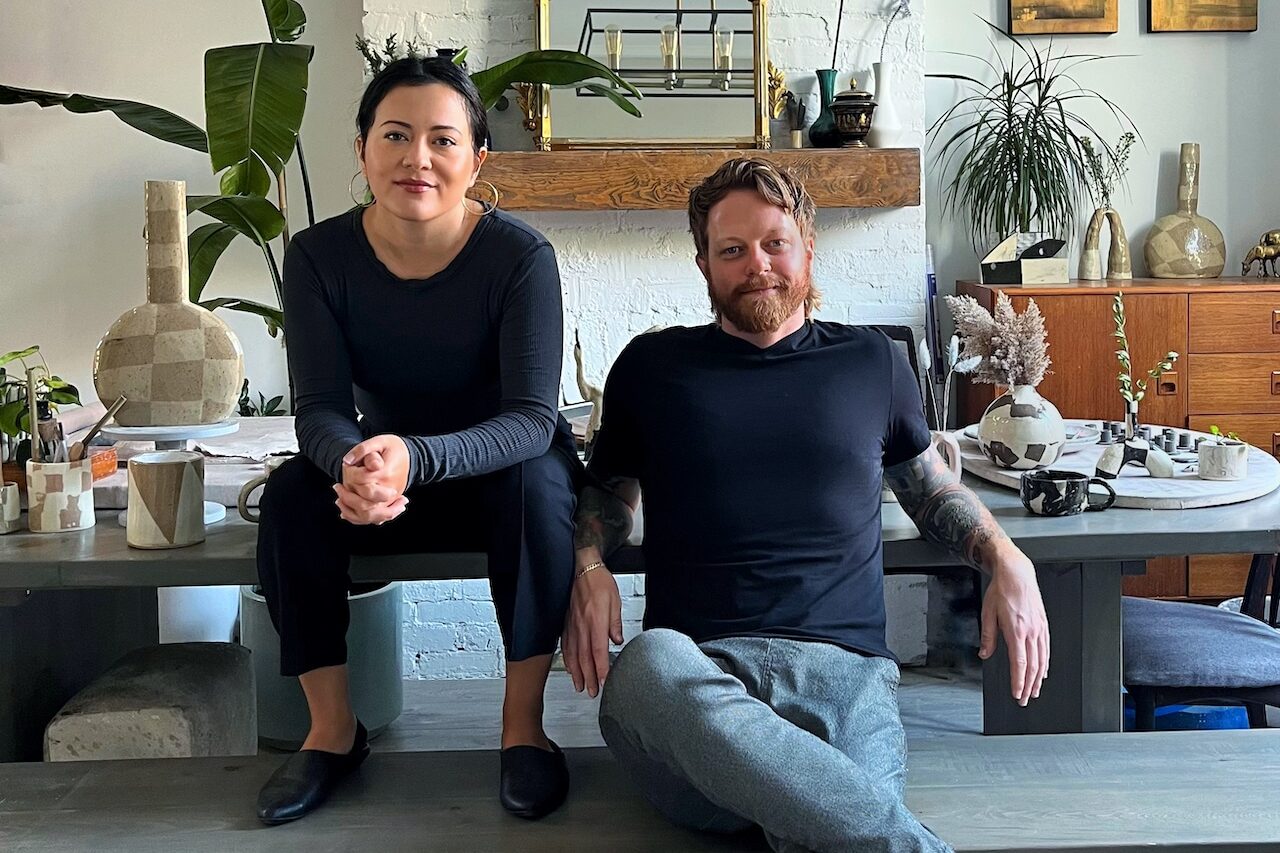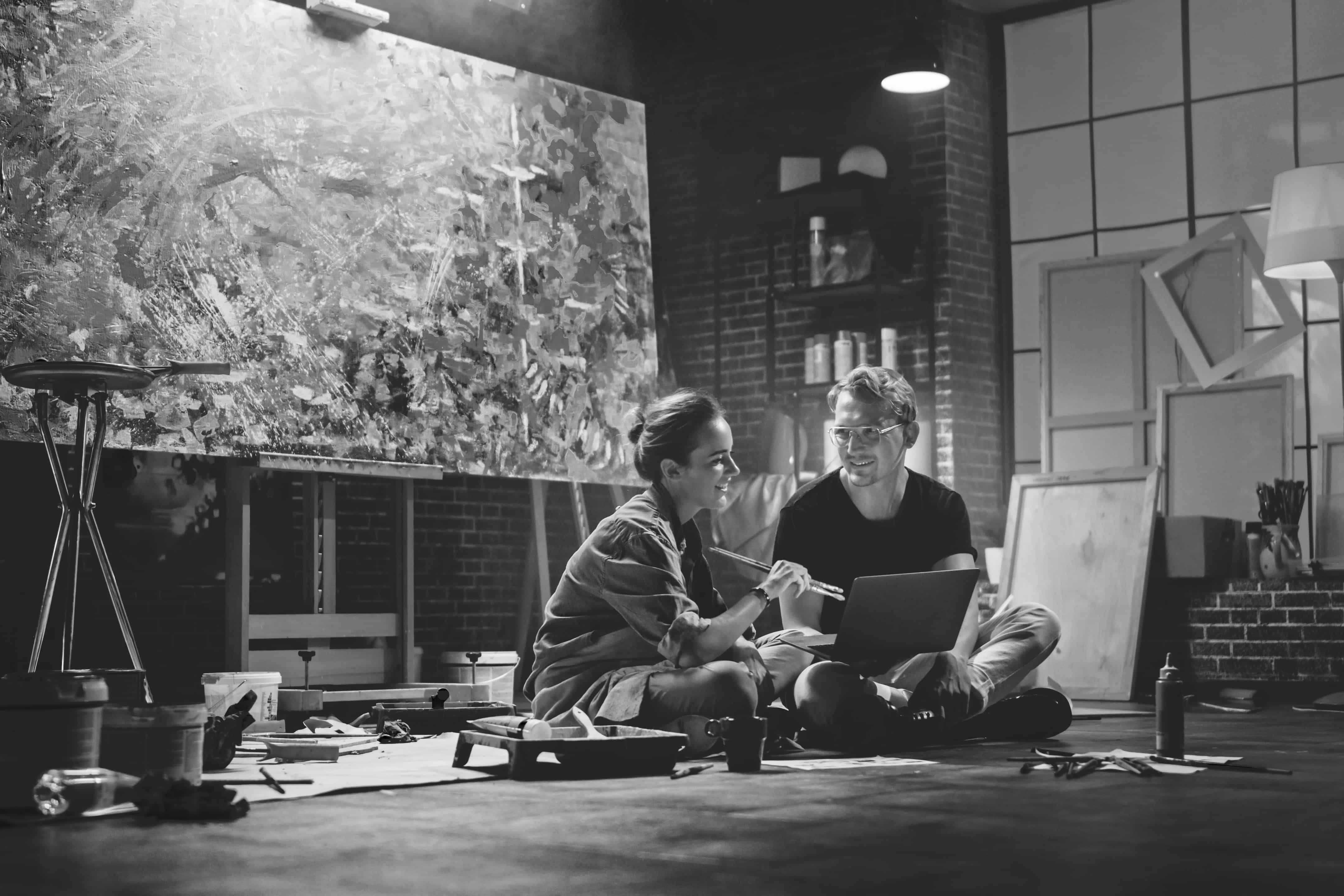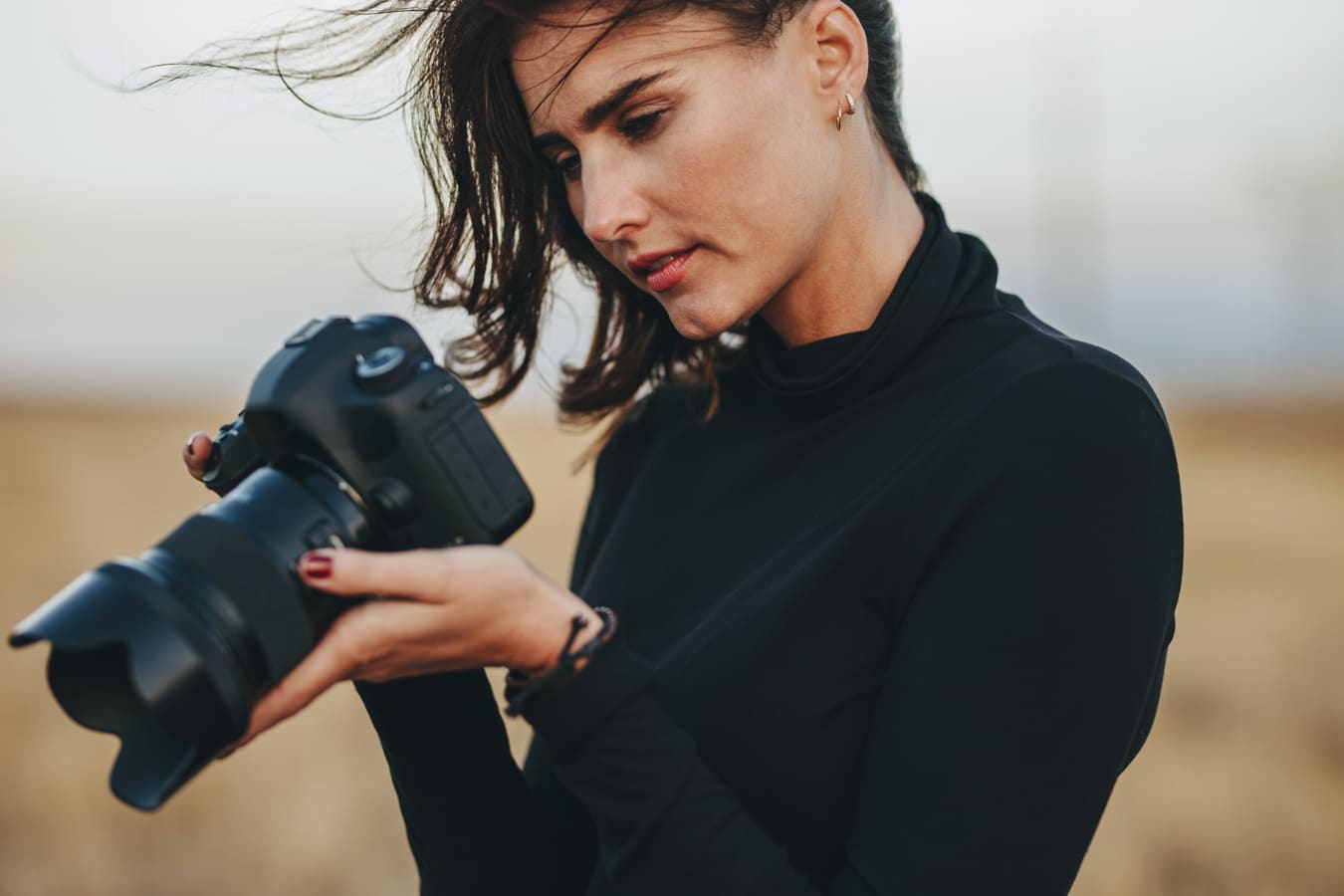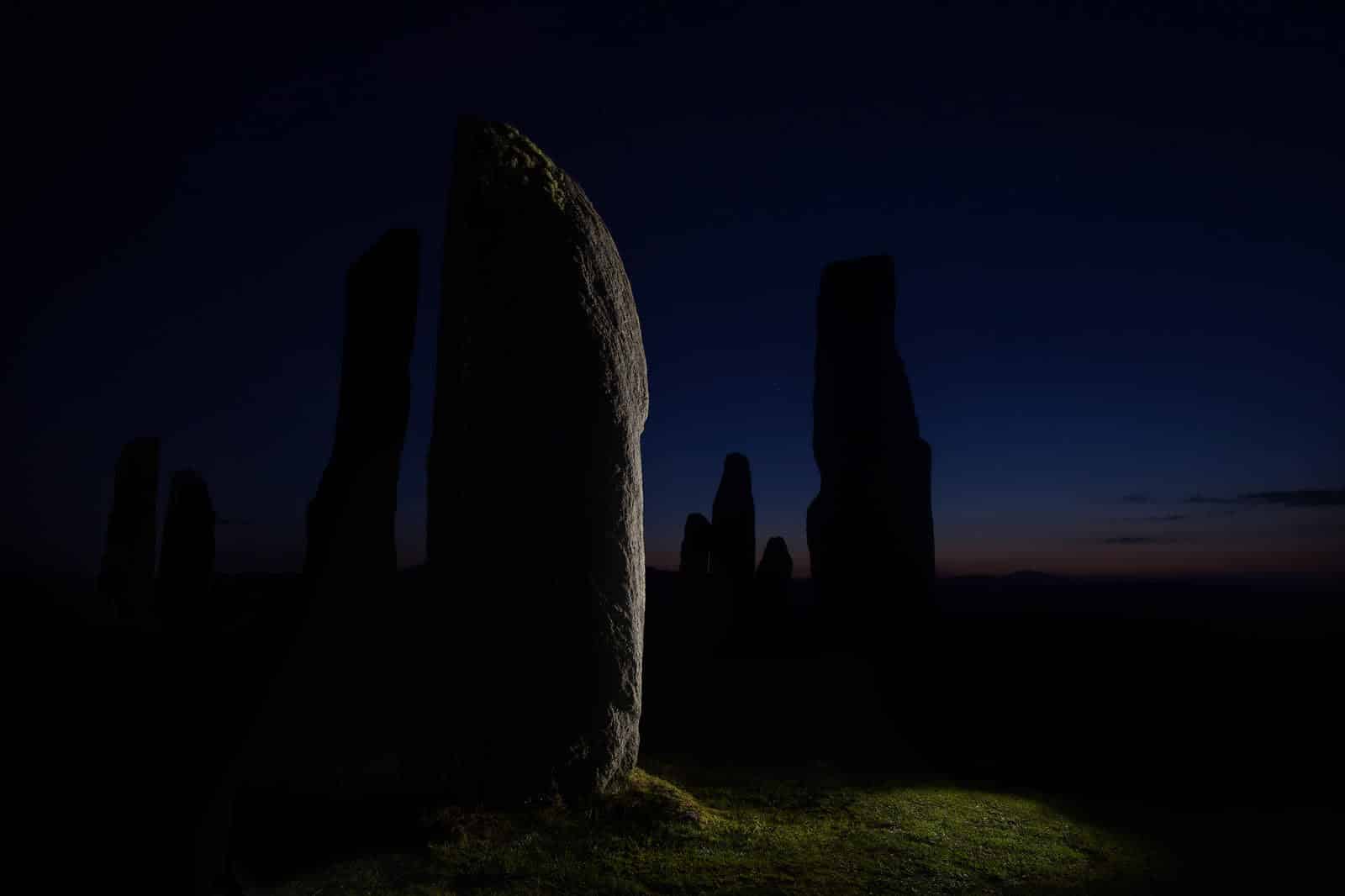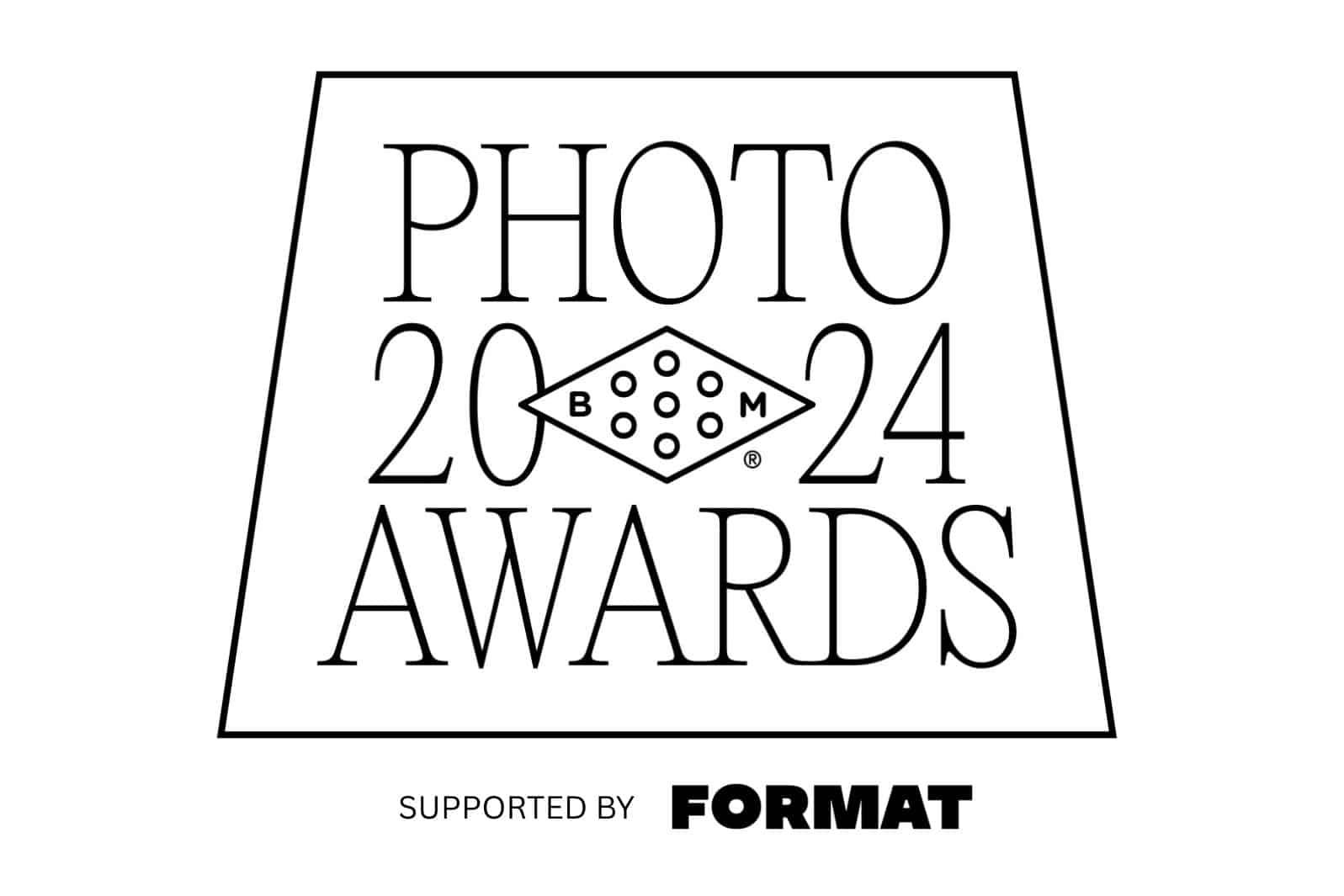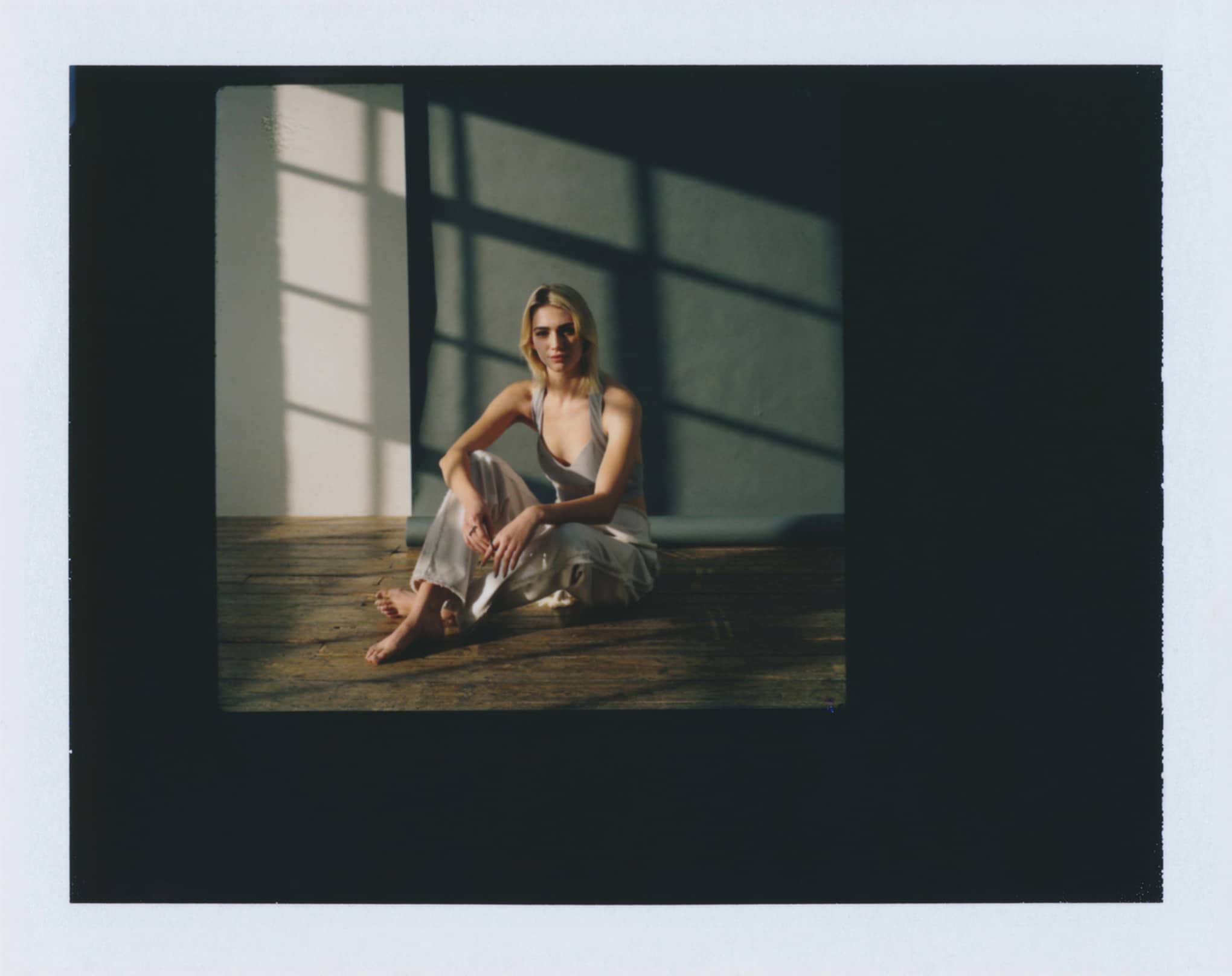Catch a glimpse of Sam Kuhn’s work and you automatically know that he’s the filmmaker. His short film Möbius, which recently premiered at the 2017 Cannes Film Festival, received attention for its theatrical neo-noir style with a ratcheted up cinematic flair. It’s an aesthetic you could pick out of a line up.
Möbius follows Stella, a high school student/poet coping with the sudden passing of her true love Sebastian. The structure flows in and out of her consciousness. It’s a hyper hallucinatory teen drama with an eeriness that Riverdale could only ever dream of. (Sorry Riverdale.)
The film’s cloudy green palette speaks to Kuhn’s roots in the American Pacific Northwest. His previous work has a similar vibe including music videos for Here We Go Magic, Okay Kaya, and Norah Jones. His earlier narrative films have screened worldwide, including Finding Truelove and In Search of the Miraculous. They activate the same sort of eerie and moth-eaten feeling that’s so woven into Möbius. It will be interesting to see how this translates into his first narrative feature length film, Cascadian Wild Flowers, which is currently in development.
Kuhn is also part of the Borscht filmmaking collective, a multidisciplinary nonprofit organization with a mission to bring vibrant arthouse films to Miami. They have hosted hundreds of screenings, exhibitions at the MOMA and Guggenheim, and the biannual Borscht Film Festival, which weaves together performance art, new media experimentation, and film screenings into one crazy event. Borscht was created in response to the lack of support and regional infrastructure for indie filmmaking in the South Florida area and beyond, an issue Kuhn is passionate about.
We got in touch with Kuhn to talk about the process behind Möbius, the struggles of getting funding, and what he thinks every first-time filmmaker should try.

Format Magazine: Möbius is a total hallucination—it reminds me of Mulholland Drive mixed with The Wizard of Oz, Donnie Darko, E.T., and The Red Shoes. What sort of films were you raised on?
Sam Kuhn: You nailed it. Others my child self loved: Mighty Ducks D2, Gold Diggers: The Secret of Bear Mountain, Fly Away Home, Titanic, Stand by Me.
How did you conceive of the story? Did it come together chronologically?
The story came about first as a concept for a music video about a high school theater tech that nobody noticed who secretly was an amazing dancer. When the band bailed, the actor Caley Jones and I dug deep into our feelings surrounding high school. We spoke at length about what it felt like to be that age and to discover books like Stephen King’s Pet Cemetery and to harbor crushes. I corralled an obsession with the teen genre and wrote the film as a sort of poetic archeology of that tradition. Caley introduced me to a lot of new music and I showed her a bunch of poetry.
Also, contextually, I was living in Brooklyn off the “murder and broadway” stop next to that bodega responsible for the K2 crisis. It felt like living in a medieval peasant village. I would literally see old Hassidic men incanting from Kabbalah magic scrolls on the street corner, then go home where my roommate, who was sorta like a character from a Dostoyevsky novel, would drunkenly lecture me.
Can you talk about the title? It’s referring to the Möbius strip, I’m guessing?
Yes, as you might remember from high school geometry, it’s a seemingly two-sided object that, on account of a twist, surprisingly, paradoxically, has only one side. I think shapes have a sort of abstract energy that you can harness in art. For the film, it was about making this strange fairy tale of romance fracturing a friend group and then a sort of twisted idea of self-authorship reuniting opposites unto infinitude.
The film feels delightfully similar to but also different from Mulholland Drive. You’ve captured something David Lynch-esque, but also something else. How did you arrive at this style?
I came to Lynch’s work very late and only on account of friends comparing what I was already doing to it. I think for a long time I felt alienated by his aesthetic choices and copious use of strange jazz. But slowly I turned around and came to understand his genius. I was very surprised to see Twin Peaks for the first time when I was 21. It was the very place I was born. In the background of the shot where Laura Palmer’s body washed ashore you can see the island where I’m from. All those locations like Snoqualmie Falls were places I would frequent as a kid.
Also, I have a very strange story about the first few months of my life. I believe I was born while they were shooting that winter in 1989. My father was away on work and so it was just me and my mother alone in this house. Long story short: There was a triple homicide at the end of our street and my mom was so scared that she locked us inside for an entire week. I tried investigating around the time I discovered Twin Peaks, in part because one of the girls who was killed looked exactly like Laura Palmer.
Nobody on the island wanted to talk about it, and there were so many strange cover ups and secrets. I’d like to write an In Cold Blood type thing about it at some point. It’s very strange. I mean, it was seven miles as the crow flies from where Laura’s fictional body appeared and directly up a hill from a burned-down mill building, and it all happened simultaneously. Needless to say, I’m deeply suspicious of the supposed divide between “fact” and “fiction.”
The score lent a really theatrical, symphonic feel to the whole thing. What was the process behind putting it together?
I always work with music when I write, then modify once shooting is done. We listened to a lot of cues on set. My goal with that was to create a sort of enchanting fairy tale opera, like following a strange song through a forest at twilight.
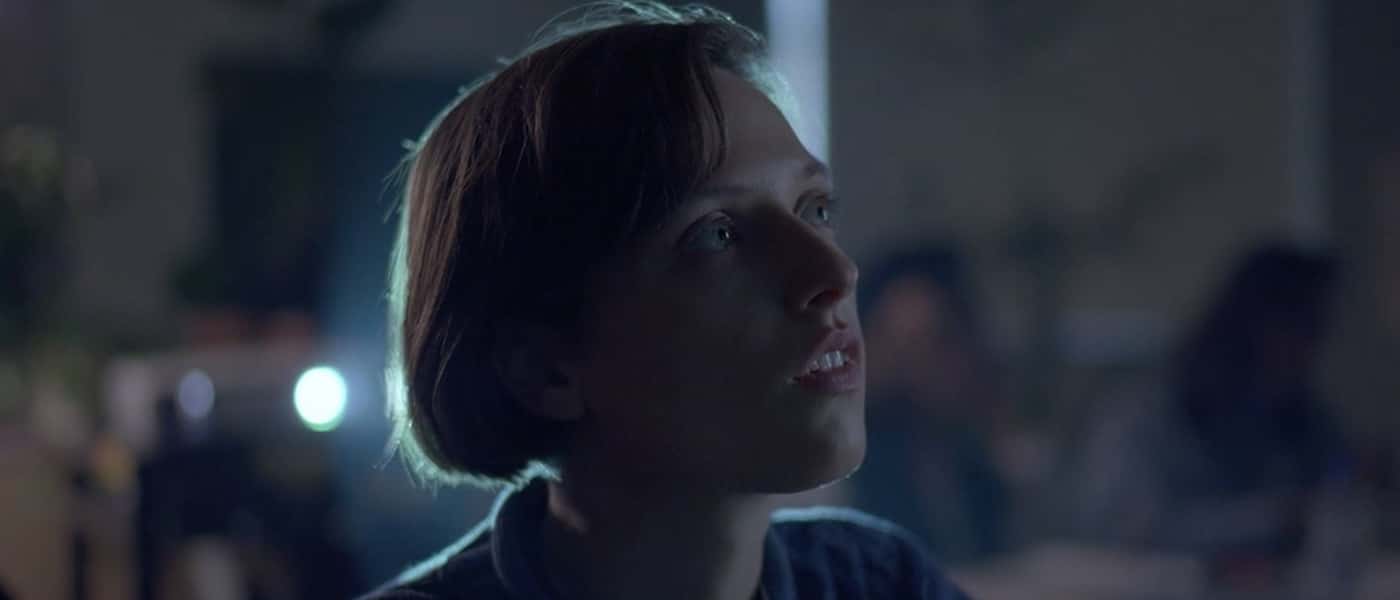
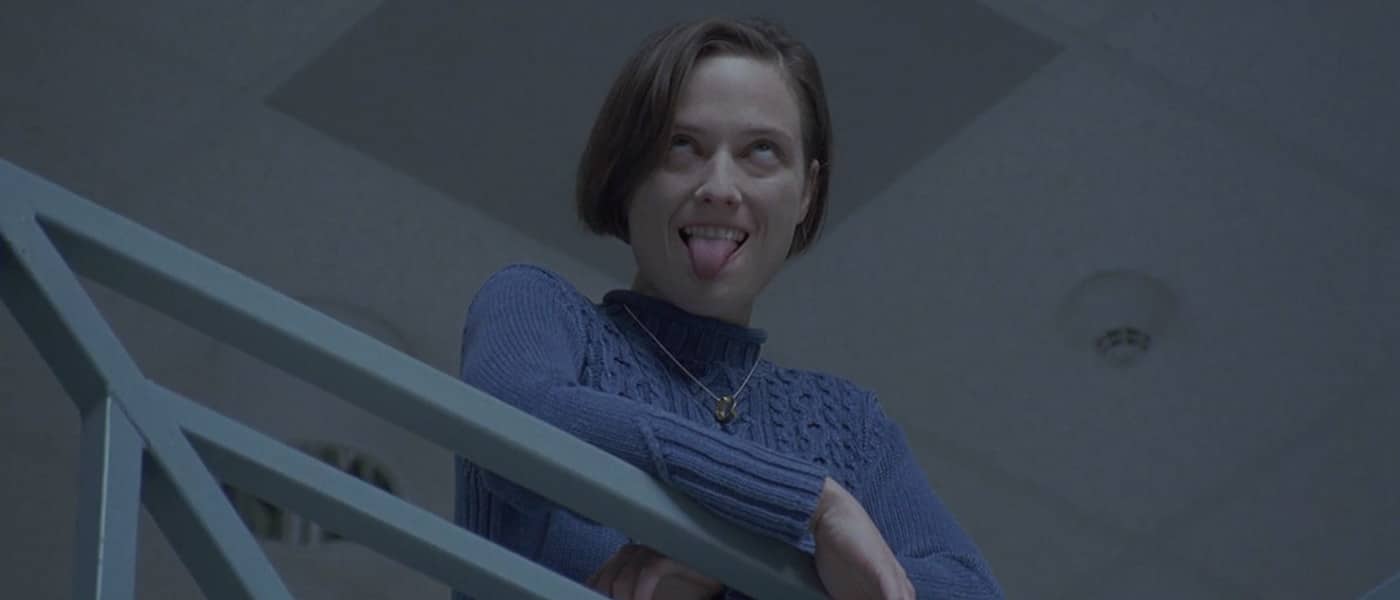
Do you think there’s something that a teen movie is particularly well suited to say? Or do you think your teen years continue to influence your work?
School in America, in my experience, is essentially an intellectual prison that saddles you with an extremely ineffectual and crippling system of knowledge designed to make you a good worker and slave to other people’s minds. There are teachers in that environment trying to save kids from hating learning, but it’s hard when the rules and architecture are so punishing. I’m not sure what influence all that had on me. It’s hard to see your own face, you know? I will say I’ve always been incredibly curious and pursued knowledge on my own terms.
I understand your film is the only American one to be included in the 2017 Cannes Film Festival Semaine de la Critique roster. Do you think there’s a lack of support for or community around more experimental or arthouse film in the States?
I will say that I personally have found much more acceptance abroad. I’m not entirely sure why this is, but there certainly seems to be more open minds, open hearts, and less paranoia in places like Canada, where we shot the film, and France, where we premiered. I think some of these other countries understand more clearly that artists are at the forefront of culture, doing a type of work that guides other types of work.
It’s ultimately about quality of life. Places that support their artists invariably have a very high quality of life. It’s not necessarily an obvious connection, and I think most Americans are of a mind that artists are some form or faction of the elite, when in fact the truth couldn’t be farther. The vast majority of artists I know in America are incredibly impoverished.
I believe art to be a noble sacrifice and its rewards are often uncertain. You’re risking all your love, money, sanity, time and reputation for something that exists to move the soul. That’s a hard thing to quantify or predict, much less recommend. You have to believe so deeply.
What kind of support do you think an emerging filmmaker needs to make a more experimental piece of work?
Experimental work requires time and money. Kickstarter is okay but it often feels like begging. It’s sad that America forces its artists into that position. In Canada there are a number of grants based on region and subject matter that allow emerging filmmakers 10-30k of government funds to create work that enriches their local culture. If America started offering things like that it would change the culture overnight. Filmmakers employ all the other artists, and so suddenly you have all the people whose job it is to create beauty in the world mobilized and inspired. This leads to good music, dancing, catharsis. God knows we could use some of that.
What’s your most sage advice for first-time indie filmmakers?
My first advice is to shoot on film, even if it’s Super 8 and you only can afford one roll. I’ve been there plenty of times. Shooting on film forces you to plan and consider each choice and this, in turn, makes your filmmaking much better.
Also, I would recommend ensuring that the experience of filmmaking is a positive for those involved. Ultimately this is going to be your job, and your life, so it’s not really worth making yourself and everyone else miserable with the pressure. Shoot somewhere beautiful, sleep, drink wine with the crew, dance together, tell jokes, ritualize the experience. Be flexible of mind. Have intention, but no expectations, they just lead to heartbreak.
